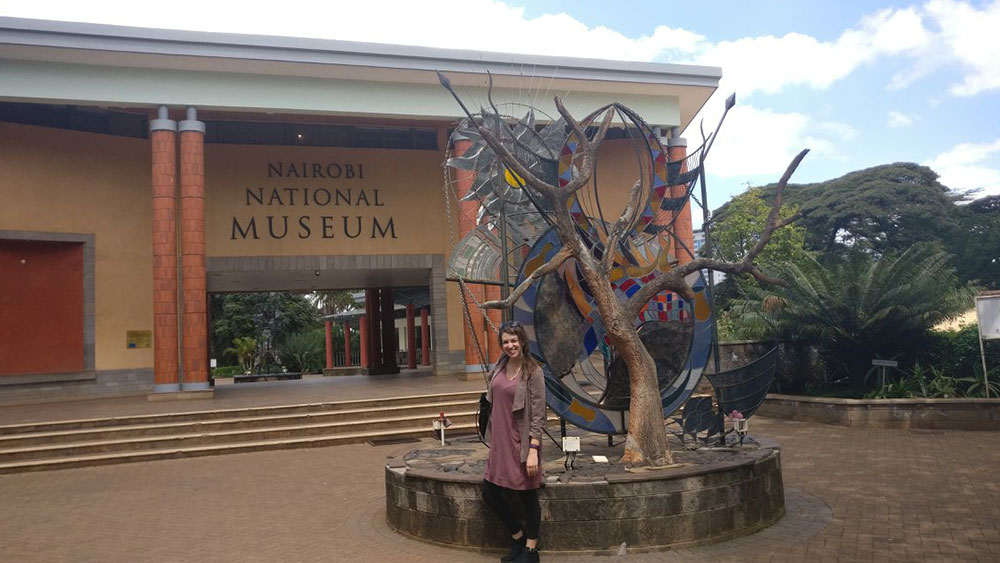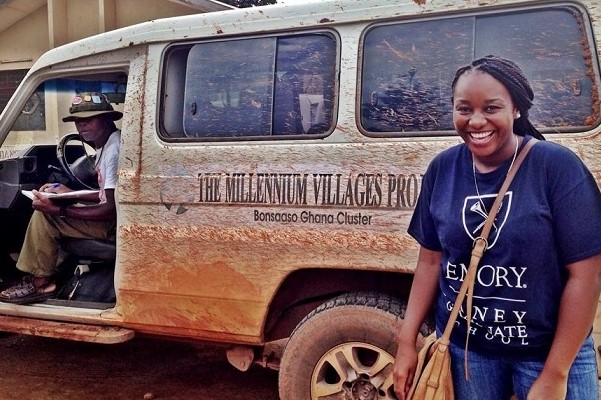Mallory St Claire (MDP 2019) Gets Published On The CGIAR Knowledge Exchange
“As a result of my practicum last summer, I did publish something on the CGIAR's knowledge exchange and I'm super proud of it,” reflects Mallory St Claire (MDP 2019) on her 2018 summer practicum with the International Livestock Research Institute (ILRI) in Nairobi, Kenya.
As embedded practitioners, MDP students complete two summer field practicums (10 weeks per summer), during which they contribute to the design, implementation, and/or evaluation of development or humanitarian interventions in Asia, Africa, and Latin America. Projects focus on a wide range of sectors, including global health, disaster response, environmental conservation, water and sanitation, housing security, social enterprise, and gender justice.
Supporting the ILRI mission to improve food and nutritional security and to reduce poverty in developing countries through research for efficient, safe and sustainable use of livestock was key to Mallory’s summer work. Specifically, Mallory worked with a small group that focused on index-based livestock insurance (IBLI). IBLI is an innovative product aimed at providing insurance to nomadic and semi-nomadic pastoralists in arid lands in the Greater Horn of Africa. Insurance allows pastoralists to maintain their herds in times of drought, which the Greater Horn is extremely prone to.
One of the ways that the IBLI responds to the needs of pastoralists is by using remotely-sensed satellite readings to detect drought levels and issue automatic payouts. Founded in 2015, the program garnered initial success and looked to scale beyond Kenya. Preparing for expansion Mallory worked with a social scientist to create a monitoring, evaluation, and learning framework for IBLI's distribution and scale. Regarding the preparation required to create such a robust framework Mallory said, “The MDP program definitely prepared me to do this work through the M&E coursework, where I learned about different logic frameworks and setting indicators, which was an important part of the framework. I also appreciated the research methods courses, because I did a rapid needs assessment and used a lot of qualitative methods that we had learned in the classroom, such as participatory assessment.”
The hard work, both in the classroom and beyond, paid off; the IBLI framework has been adopted in both Kenya and Ethiopia and the team’s recommendations have been published! The extension brief, Monitoring, evaluating and learning for education and extension–a framework for Index Based Livestock Insurance (PDF link), covers the content analysis, theory of change, interventions, and recommendations.

For Mallory this was the first time she had worked with pastoralist/indigenous issues and recalls that “learning about pastoralist practices, ways of life, and their current challenges was both incredible and challenging” to her worldview, citing as an example “the arid lands are incredibly ecologically fragile, and pastoralist techniques of rearing livestock are actually more sustainable than spatially-fixed ranch farming, because pastoralist communities have intimate knowledge of pasturelands and are able to move their livestock to different areas, allowing for the land to regenerate”.
Congratulations to Mallory and the IBLI team on all their past, current, and future successes!
You can follow Mallory’s professional journey on LinkedIn and learn more about ILRI via their webpage.
Curriculum
The Emory MDP curriculum combines natural, social, health sciences and management.
FIELD PRACTICUM
The Field Practicum is a core component of the Emory MDP curriculum.

